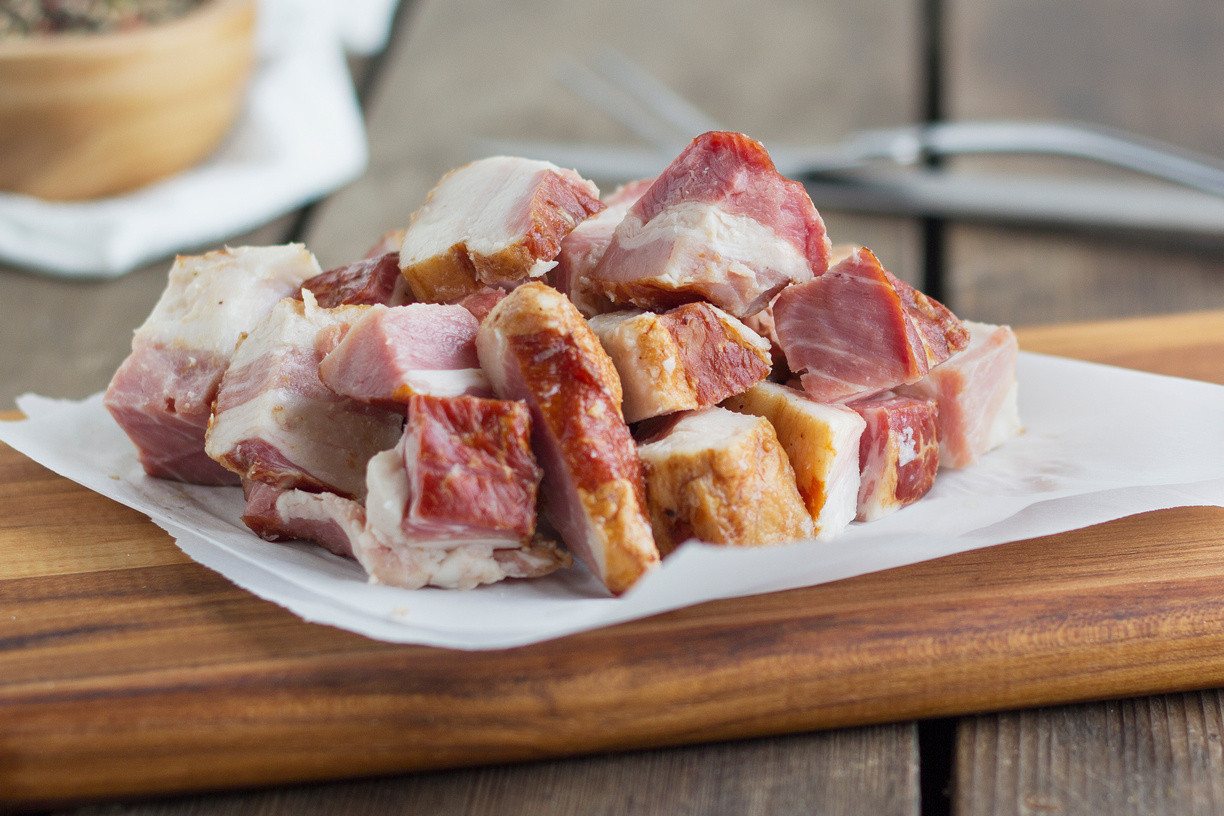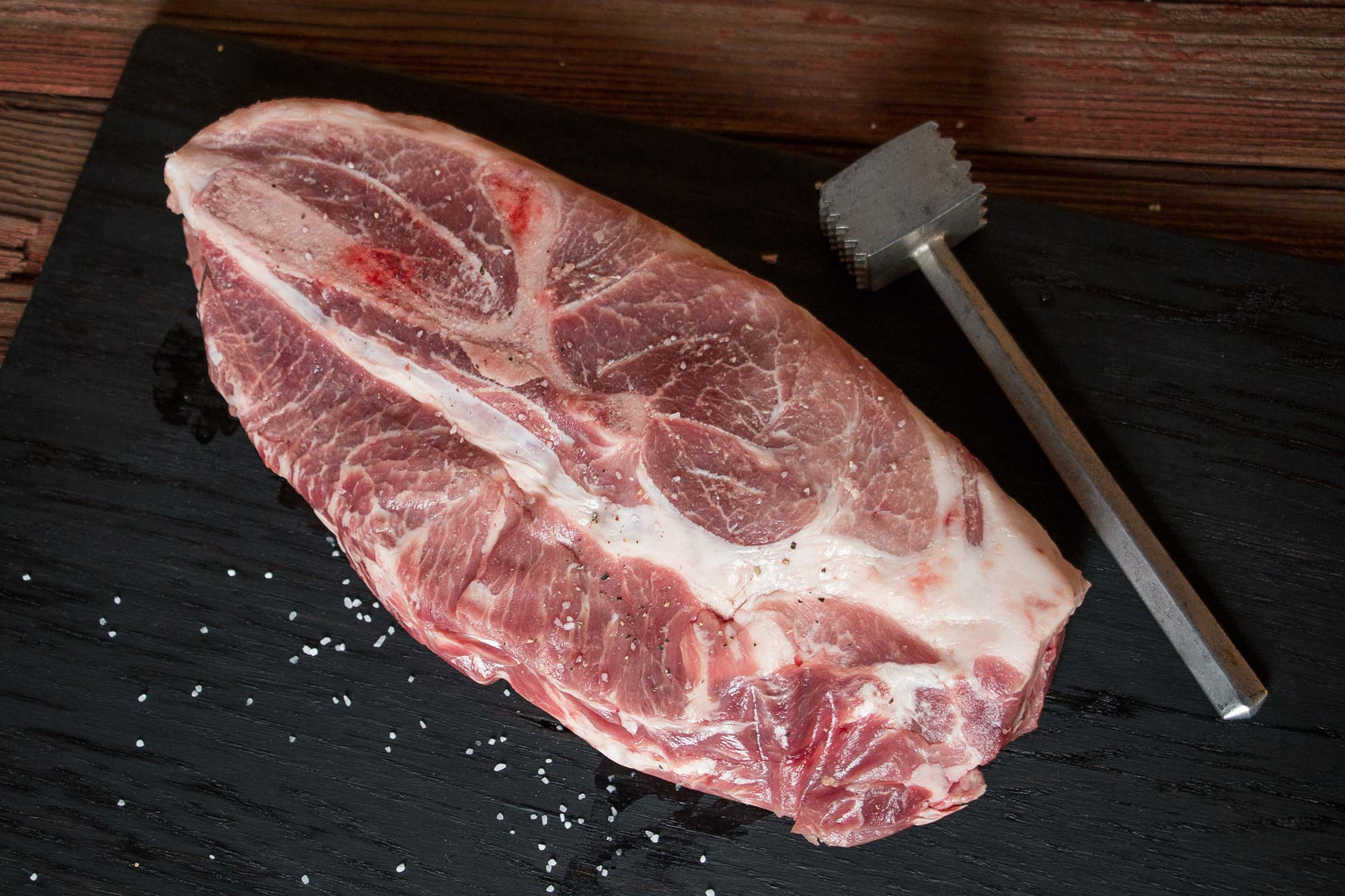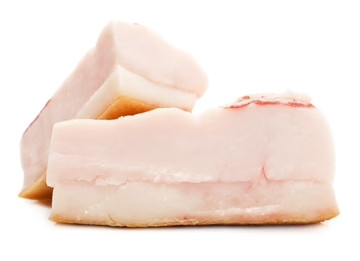Grain-Free Pastured Pork
Our pigs diet consists only of milk, fruit, and what they find in the pasture and woods. Because our pigs aren't fed any grains, (corn/soy etc.) this reduces the amount of polyunsaturated fats (PUFA) in the meat.
The amount of PUFA in the American diet has skyrocketed in recent decades. The evidence that excess PUFA is a major contributor to modern diseases continues to accumulate. These oils accumulate in pork if you feed it to the animals, and they also accumulate in humans. Unlike cows and other ruminant animals, pigs are what they eat. The fat composition of pork is completely in our control. Modern feedlots, and even many small farms, feed pigs corn and soy, which is high in PUFA. We've sent a sample of our pork fat to a lab for analysis and we found that we reduced the PUFA by 80%!
Grocery Store Pork Sample:
* Polyunsaturated fat (PUFA) 23%
* Monounsaturated fat (MUFA) 43%
* Saturated fat 33%
Purifying Pastures Pork Sample:
* Polyunsaturated fat (PUFA) 5%
* Monounsaturated fat (MUFA) 45%
* Saturated fat 47%
Our pigs live in small groups with more than two acres per group to graze, sunbathe, root through the dirt, and wallow in their self-made mud holes.
Hickory Smoked Ham Roast
Avg 3.0 - 5.0 lbs
Grain-Free Bone-In Pork Chops
2 pork chops per package, 1.25 - 1.75 lb average weight
Grain-Free Natural Cure Bacon (Sugar and Nitrate Free)
1 lb. package
Hickory Smoked Sliced Ham (Nitrate and Sugar Free)
Each pack weighs around 12 ounces (0.8 lbs)
Grain-Free Ground Pork
1 lb. package
Grain-Free Spare Ribs
Each package weighs between 1.5 - 2.0 lbs
Grain-Free Small Link Breakfast Sausage
1 lb. package
Grain-Free Ground Italian Sausage
1 lb. package
Grain-Free Ground Hot Italian Sausage
1 lb. package
Grain-Free Ground Chorizo Sausage
1 lb. package
Grain-Free Bratwurst Large Links
1 lb. package
Grain-Free Kielbasa Large Link Sausage
1 lb. package
Grain-Free Bone-In Shoulder Roast
Each roast weighs around 5.0 lbs
Grain-Free Un-rendered Ground Pork Fat
2 lb. package
Grain-Free Pastured Pork Liver
Each package weighs between 0.9 - 1.1 lbs
Grain-Free Fresh Ham Hock (skinless)
Each package contains 1 ham hocks weighing between 1.5 - 2.0 lbs
Grain-Free Pork Bones
5 lb pack
Grain-Free Pastured Pork Heart
Each heart weighs between 0.5 - 1.0 lbs
Grain-Free Pastured Pork Kidney
Each kidney weighs around 5 - 6 ounces (1/3 of a lb)
Grain-Free Pastured Pork Tongue
Each tongue weighs around 0.5 lbs


















